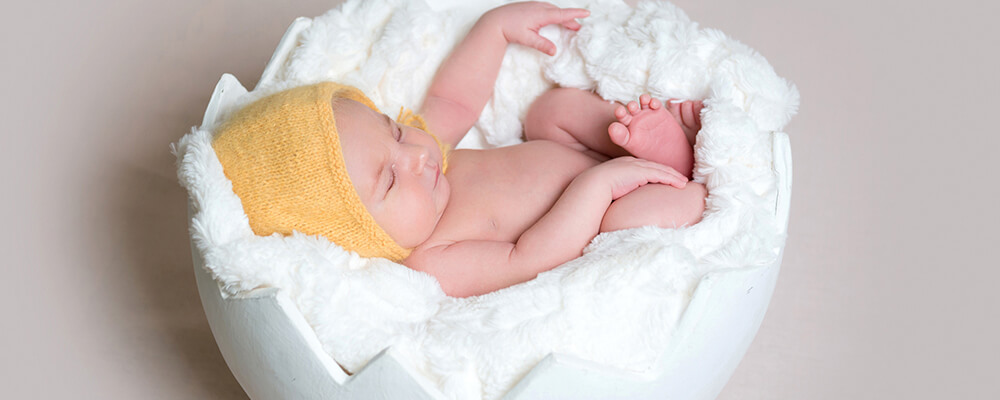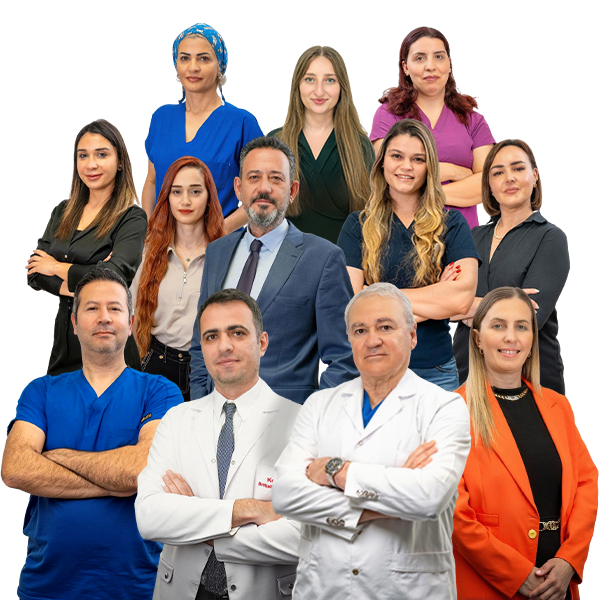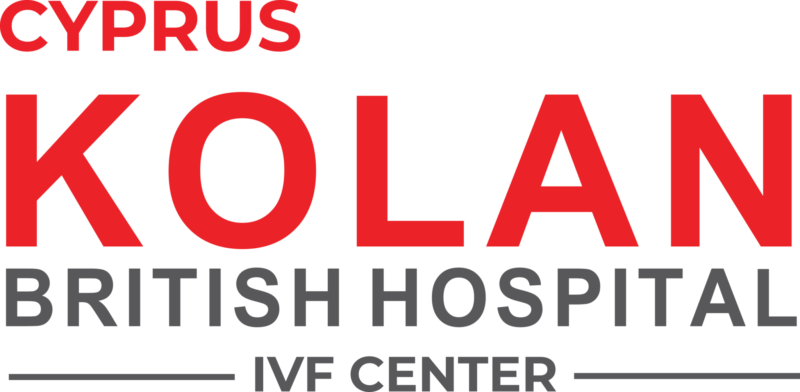
What is egg donation?
Egg donation means that one woman donates her eggs to another woman's pregnancy.In this process, the eggs collected from a donor (dorn) are fertilized in the laboratory environment with the sperm taken from the male partner of the couple who applied for donation, and the developing embryos are transferred to the female partner.
The aim of this application is to overcome the infertility problem, which is connected to women and cannot be overcome by conventional methods, by using eggs taken from healthy and young donors.
History of Egg Donation
In the egg donation, the first applications of which were carried out in the world in the early 1980s, 1 egg of a patient who was already receiving IVF treatment was used for another patient, and pregnancy was achieved. However, this pregnancy resulted in a miscarriage and could not reach a live birth.
In the trial administered in 1984, the egg of a patient receiving IVF treatment was used for a patient with premature ovarian failure, that is, early menopause, and in this application, the recipient's endometrium was prepared with oral estradiol and vaginal progesterone. This trial resulted in pregnancy and live birth and went down in history as the first successful egg donation application.
After this success, egg donation has become the main treatment option for patients with premature ovarian failure. This success also showed that the endometrium can be made suitable for pregnancy with the use of external estrogen and progesterone in patients with ovarian dysfunctions, and the rapid spread of egg donation in the world.
The second important achievement in egg donation was the use of egg freezing. In particular, with the development of the vitrification method for embryo freezing, the use of egg freezing in the early 2000s, and the optimization of the protocols, it is currently possible to obtain more than 90% viable returns after freezing-thaw. This development eliminated the necessity of synchronizing the cycles of the receiver and transmitter for the donation and made the planning of the process much easier for the applicants.
Who Can Apply for Egg Donation?
The presence of an infertility problem is not required to resort to egg donation; Couples can also apply to this application with their personal preferences. For most of the couples who apply to this application, donation is the only option to reach pregnancy.
Repetition of standard IVF applications many times to achieve pregnancy can sometimes be abrasive for couples. Egg donation can be considered as a preference for these couples.
Cases where egg donation is a mandatory option
* Absence of ovary (ovarians)
* Ooferoctomy/Overeuectomy (removal of ovaries). Cases of ovarian tissue from infections, cancer or endometriosis
*gonadal dysgenesis
* Absence of eggs
* chemotherapy/radiotherapy-related secondary menopause conditions
* Premature ovarian failure (early menopause)
* Menopause
* Presence of inherited genetic disease or carriage, whose mutation cannot be identified by genetic screening methods
Situations where egg donation can create a preference
* Cases with advanced female age and/or young but low ovarian reserves
* Cases with a history of embryo developmental problems, fertilization problems, and a history of recurrent embryo development due to low egg quality
* Cases with a history of embryo development with recurrent chromosome numerical anomaly (aneuploid)
hormonal problems affecting ovarian functions (hypergonadotropic hypogonadism)
* Genetic origin (Turner syndrome, etc.) or acquired ovarian dysfunctions
* Inherited genetic disease or carrier presence
Whatever your reason for applying for donation, all your processes in our center will be followed with the same precision. But especially for our couples who apply because they have no other choice, it is the most enjoyable aspect of our business to overcome your infertility problem that you once thought was helpless.
Why egg donation?
While all cells in the human body are damaged by being exposed to oxidative stress and are constantly renewed, this is not the case for reproductive cells in women. This situation causes the accumulation of damage to the eggs and the weakening of cell functions with advancing age. This is the most important reason for the increased risk of chromosomal anomaly in embryos depending on advanced female age. Since donors with young and therefore healthy eggs are preferred in egg donation, this disadvantage is largely eliminated.
Another advantage of egg donation is that the effect of the recipient's age on the chance of success is quite low. In clinical studies in this area, it has been shown that similar pregnancy and live birth rates are obtained in patients in this age group, in the absence of uterine and/or endometrial factors that will adversely affect implantation.
Who can be a donor?
The most important factor determining the success of egg donation is the age of the donor. Clinical studies show that the highest success rates are achieved in applications where the donor age is 34 and below. The age range defined in the relevant legislation for donors in our country is 18-35 years old. In our center, donors between the ages of 20-25 are mainly used. In addition, the donor's body mass index should be in the range of 19-29 kg/m2.
In egg donation, a fertile relative preferred by the couple can be used as a donor (known donor) but predominantly unknown donors are preferred by the couple.
Procedures and screening tests defined in international guidelines (ASRM/Eshre Guidelines) are applied to determine the conformity of the donor and receiver in egg donation.
for donor
* Comprehensive profile form with personal and family health history to be filled by the donor.
* Physical examination
* blood type
* Serological tests (HIV 1 and 2, hepatitis B/C)
* syphilis vdrl
* Multiplex PCR for sexually transmitted diseases (gonorrhea, chlamydia, ureaplasma, mycoplasma)
* Peripheral karyotype analysis (chromosome structure and number analysis)
for buyer
* All transactions applied to the donor are also applied to the buyer.
* In addition, ultrasonographic examination of the uterus is performed and hysterosalpingography or hysteroscopy is performed if necessary.
Matching donor and receiver
First of all, considering the preference of the donor's blood group and the couple, it is important to ensure that the physical characteristics of the donor (ethnic origin, skin-eye-hair color, body structure, etc.) match with the recipient's characteristics. If fresh donor eggs are planned to be used, the donor and receiver are started to be prepared synchronously after the appropriate donor is determined. It is aimed to obtain an average of 10 mature eggs in the ovulation induction process applied to the donor.
In this process, the use of the necessary drugs will be started in order to prepare the uterus of the buyer for the transfer. If frozen donor eggs are planned to be used, the eggs will be used by thawing at the appropriate stage of the recipient's cycle. In both cases, the eggs obtained are injected with the sperm of the male partner, and the fertilization and embryo development process are followed.
Egg Donation Process Summary
* Interview with a specialist doctor: In this interview, your health history history will be taken, physical examination and necessary tests will be planned.
* Interview with the Coordinator: Your transportation and accommodation organizations will be planned in this meeting. Except for medical issues, all the details of the treatment process will be discussed and your profile forms will be arranged. Donor selection will also be determined at this stage.
* Psychological Counseling: Couples can get counseling about their questions about the donation process and its aftermath, and their social or psychological concerns. Your first session about this is covered by our center free of charge.
* Requesting tests: Relevant screening tests for women, blood group for men, serological tests and semen analysis tests will be required.
* Ultrasonographic examination: It is applied to analyze the structure of the uterus. If necessary, hysteroscopic examination may be requested.
* Use of drugs for uterine preparation
* Identifying your control appointments during the treatment process
* Egg collection and embryo culture: Mature eggs collected from the donor on the day determined by your doctor or frozen-thawed eggs are injected with sperm taken from your spouse on the same day. The next day, fertilization control is performed and then the embryo development is followed and the appropriate transfer day is planned. In this process, you will receive daily information about the condition of your embryos.
* Embryo biopsy: If genetic diagnosis is planned in embryos and the FISH method is preferred, embryos that have reached sufficient level of development and quality can be biopsied on the 3rd day and transfer can be performed in the same cycle. If the NGS method is preferred, the embryos are frozen after the 5th day embryo biopsy procedure.
* Embryo transfer: In line with the quality of the developing embryos, how many embryos will be transferred will be determined and the selected embryos will be transferred to your uterus. The transfer process is a simple and short process (approximately 15 minutes). After a short rest after the procedure, you will be able to return to your daily life.
* Pregnancy: According to the developmental stage of the transferred embryos, the result will be determined with the pregnancy test (beta hCG) to be checked from the blood 9 or 12 days after the transfer. If positive results are obtained, gestational sac control is required with an ultrasound examination 2-3 weeks after the test.
Success rates in egg donation
In addition to the fact that we have a live return rate of more than 95% in frozen-thawed donor eggs and a blastocyst over 65% in our center, it gives very similar results in terms of pregnancy rates of fresh and frozen-thawed donor eggs.
Factors such as the age, health status of the donor eggs and the uterus of the embryo can affect the success rate. In general, the success rate of egg donation is high. Since the eggs used in the donation in our center are young (20-30 years old), health screenings have been made and mainly from donors whose success rates are known, there are more than 80% success rates even in a single transfer. Although this rate may vary according to the sperm parameters of the male partner, there is no significant change in our rates if there are no very severe sperm morphological defects due to the sensitivity we show about sperm selection in our center.
Privacy
When an anonymous donor is used in the egg donation application, the identities of the donor and receiver are kept confidential. The applicant couples can only access the information in the donor's profile form, the donor's photo, identity and contact information are kept confidential. Likewise, donors cannot access the information of the couples whose eggs are used.
legal situation
IVF and Donation Treatment Processes in Cyprus are subject to the Law No. According to this law:
* Donor age should be between the ages of 18-35.
* The body mass index should be in the range of 19-29.
In donor cycles, the number of transfers is decided in accordance with the limitations in the IVF cycles by including the ages of the donor and the receiver and the quality of the embryos to be transferred.
In order to be able to transfer embryos in people over 45 years old; It is necessary to be documented medically by the Internal Medicine and Cardiology Specialist, and to carry out additional examinations if the Ethics Approval Committee deems it necessary.
Ethical, social, psychological aspects of egg donation
Reproductive rights are one of the fundamental rights of individuals. The use of reproductive treatment methods to support this right should also be evaluated as long as it is maintained in accordance with the principles of utility, non-harm, justice and autonomy in the treatment processes.
In line with the principle of usefulness, detailed information should be given about the scope of the treatment to be applied, and its benefits and possible risks should be clearly explained.
In line with the principle of non-damage, the health of both the couple applying for treatment and the donor should be the primary priority and should be kept above the material interests. Again, it is necessary to observe the psychological health of the couple and the donor, to avoid giving incomplete/false information and unrealistic hopes.
In line with the principle of justice, every patient who applies for treatment should be treated as equal individuals, regardless of their ethnic origin, material/social status, beliefs and thoughts.
In line with the principle of autonomy, the personal beliefs and thoughts of the patients should be respected, and the process should be continued by obtaining informed consent at every stage to ensure that there is no contradiction in the treatment to be applied. In addition, it should be ensured that both men and women are ready for the treatment process, they should be encouraged to share openly if they have hesitations/questions, and their needs in this direction should be fully met.
Since the child born in egg donation will carry the genes of half a stranger, this situation can also cause social concerns for couples who apply to treatment. As a result of the treatment, from the moment you get pregnant, the process will not be different from a normal pregnancy, and the child to be born will be legally completely yours. Sharing how they got the pregnancy is a purely subjective decision that couples will take together. Considering the physical characteristics in the selection of the donor will reduce your concerns, as it will increase the probability of the child to be born similar to the recipient couple. Since your identity information will be kept confidential and will never be shared with third parties, it is only left to the choice of the couple that they have a donation application.
Since the donation application is a psychologically sensitive procedure for couples, it is recommended and supported to receive psychological counseling before treatment. For this purpose, the first consultancy you will receive at our center is offered free of charge. In this consultancy, couples will have the opportunity to receive psychological support on the long-term effects of the donation application in the event of the treatment process and pregnancy.
Is the baby formed in egg donation like a mother?
In egg donation, donors with similar physical characteristics are used to you. However, considering the exact genetic structure, an embryo with the genetic characteristics of the male partner and donor will be transferred to you. Since some details such as physical features and blood group are taken into account in the donor selection, the baby will also be largely double in terms of physical features.
Can sex be determined in egg donation?
It is possible to determine gender by genetic tests to be performed on the embryo formed after egg donation. These tests are blastomer biopsy and FISH method that can be performed on the 3rd day of embryo development, or trophectoderm biopsy and NGS method that can be performed on the 5th day.
Can egg donation be done in those who do not have egg reserves or in women who have undergone menopause?
Women whose ovarian reserve is depleted or who have entered menopause can also become pregnant with egg donation, regardless of age. In order to carry out embryo transfer only in women over 45 years old: It is necessary to be medically documented by our Internal Medicine and Cardiology specialists that there is no obstacle to pregnancy. This reporting process can only be done in a few centers in Cyprus, and our center is one of them.
Frequently Asked Questions
We usually start treatment on the 2nd or 3rd day of your period, and the process is completed within approximately 20-21 days. After the transfer, we wait 12 days and perform a pregnancy test on your blood.
Our success rates generally range between 60% and 80%. These rates may vary depending on age and health status.
Our donors are selected from healthy individuals aged 20-30 who meet the appropriate criteria.
Yes, we can select healthy embryos using genetic screening methods. For couples with a family history or risk of genetic disease, this method offers a very high chance of having a healthy baby.


Free Consultation
Our expert consultants will get back to you as soon as possible.


